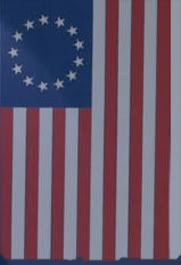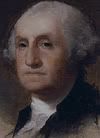
 Fellow Citizens . . . . I am again called upon by the voice of my country to execute the functions of its Chief Magistrate.
When the occasion proper for it shall arrive, I shall endeavor to express the high sense I entertain of this distinguished honor, and of the confidence
which has been reposed in me by the people of united America.
Fellow Citizens . . . . I am again called upon by the voice of my country to execute the functions of its Chief Magistrate.
When the occasion proper for it shall arrive, I shall endeavor to express the high sense I entertain of this distinguished honor, and of the confidence
which has been reposed in me by the people of united America.
Previous to the execution of any official act of the President the requires an oath of office. This oath I am now about to take, and in your presence: That if it shall be found during my administration of the Government I have in any instance violated willingly or knowingly the injunctions thereof, I may (besides incurring constitutional punishment) be subject to the upbraidings of all who are now witnesses of the present solemn ceremony. From 1759 to the outbreak of the American Revolution, Washington managed his lands around Mount Vernon and served in the Virginia House of Burgesses. Married to a widow, Martha Dandridge Custis, he devoted himself to a busy and happy life. But like his fellow planters, Washington felt himself exploited by British merchants and hampered by British regulations. As the quarrel with the mother country grew acute, he moderately but firmly voiced his resistance to the restrictions. When the Second Continental Congress assembled in Philadelphia in May 1775, Washington, one of the Virginia delegates, was elected Commander in Chief of the Continental Army. On July 3, 1775, at Cambridge, Massachusetts, he took command of his ill-trained troops and embarked upon a war that was to last six grueling years. He realized early that the best strategy was to harass the British. He reported to Congress, "we should on all Occasions avoid a general Action, or put anything to the Risque, unless compelled by a necessity, into which we ought never to be drawn." Ensuing battles saw him fall back slowly, then strike unexpectedly. Finally in 1781 with the aid of French allies--he forced the surrender of Cornwallis at Yorktown. Washington longed to retire to his fields at Mount Vernon. But he soon realized that the Nation under its Articles of Confederation was not functioning well, so he became a prime mover in the steps leading to the Constitutional Convention at Philadelphia in 1787. When the new Constitution was ratified, the Electoral College unanimously elected Washington President He did not infringe upon the policy making powers that he felt the Constitution gave Congress. But the determination of foreign policy became preponderantly a Presidential concern. When the French Revolution led to a major war between France and England, Washington refused to accept entirely the recommendations of either his Secretary of State Thomas Jefferson, who was pro-French, or his Secretary of the Treasury Alexander Hamilton, who was pro-British. Rather, he insisted upon a neutral course until the United States could grow stronger. To his disappointment, two parties were developing by the end of his first term. Wearied of politics, feeling old, he retired at the end of his second. In his Farewell Address, he urged his countrymen to forswear excessive party spirit and geographical distinctions. In foreign affairs, he warned against long-term alliances. Washington enjoyed less than three years of retirement at Mount Vernon, for he died of a throat infection December 14, 1799. For months the Nation mourned him. |